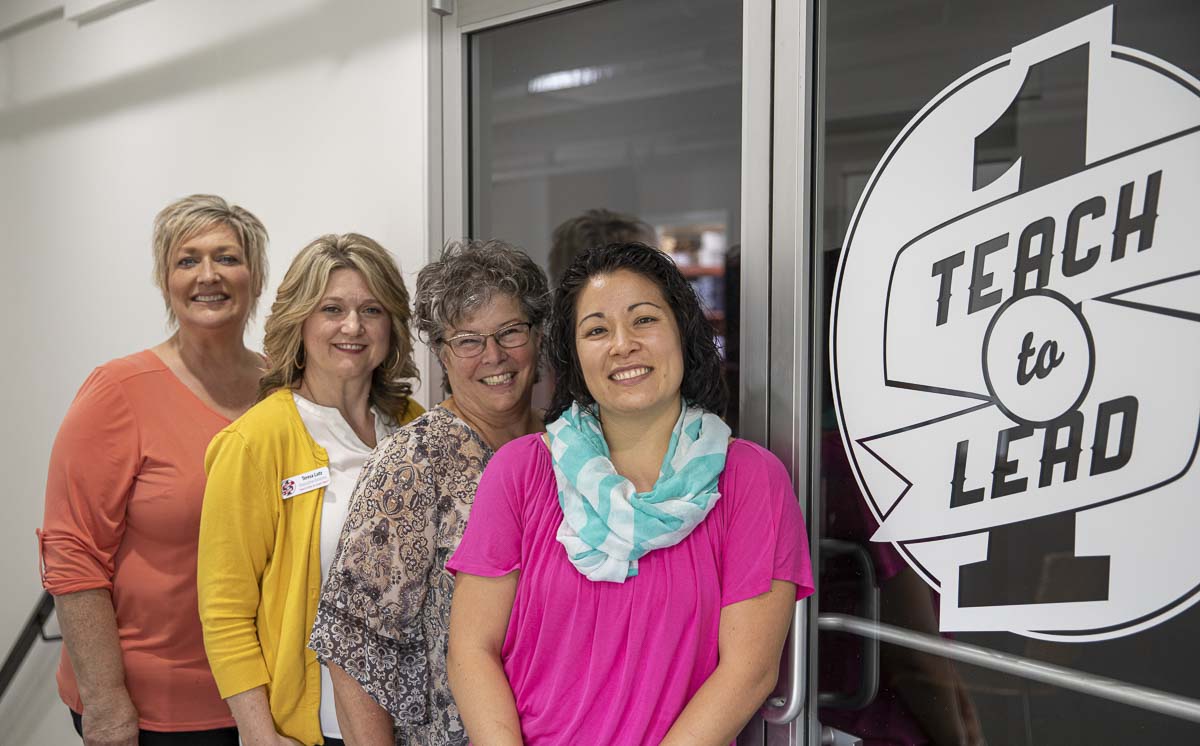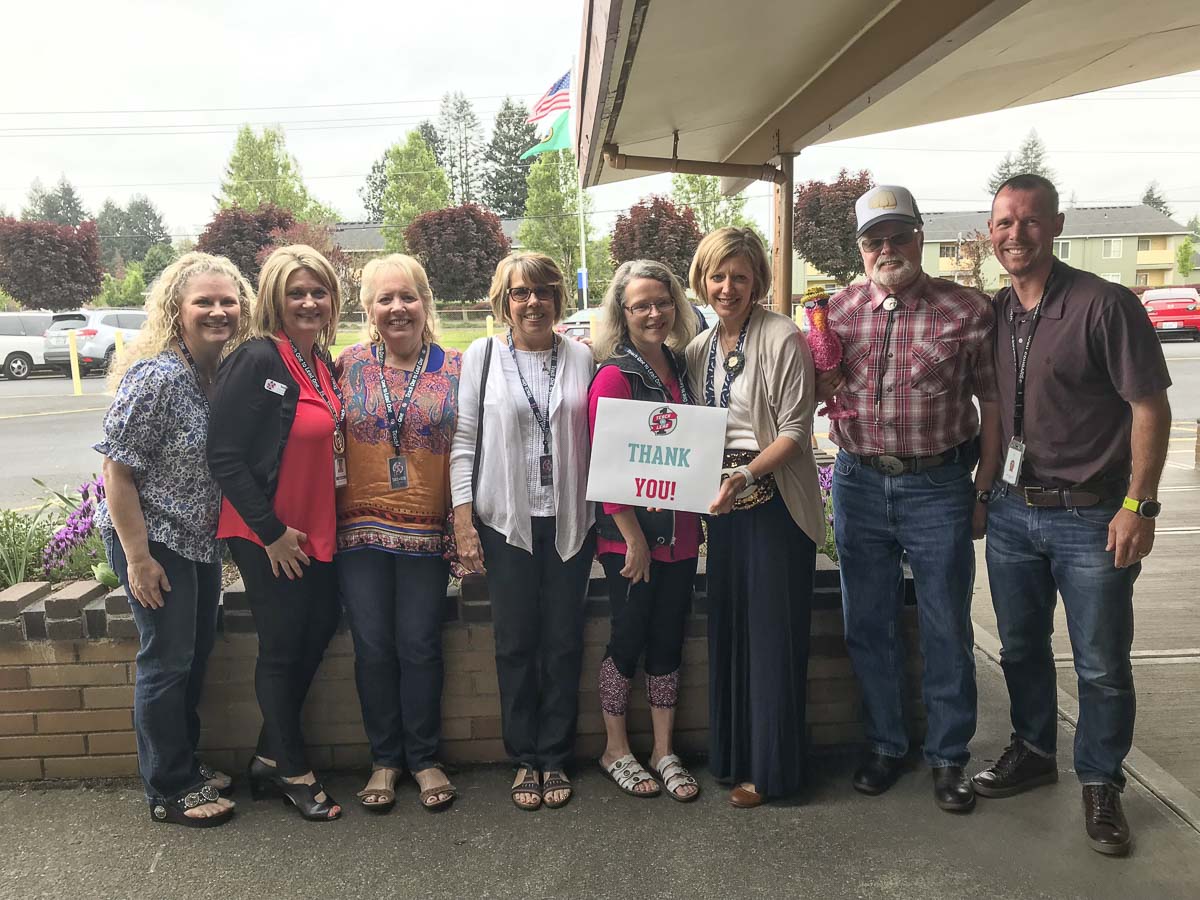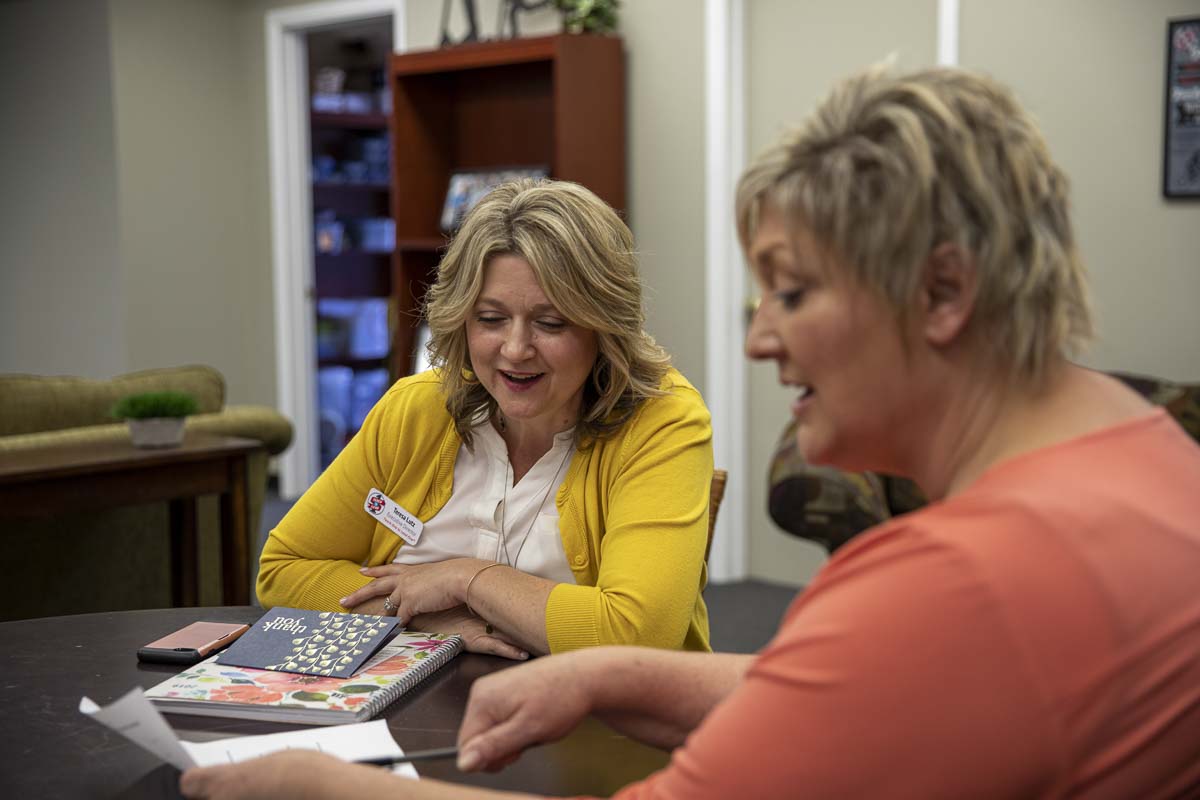Program expanding into new school districts; plans to reach 600 students in 2019
VANCOUVER — Around 80,000 students attend school in Clark County each day during the school year. Many of those students are at-risk of not graduating, falling into negative behaviors or even losing hope and ending their lives.
One global organization made reducing the number of at-risk students their mission over 20 years ago, and their Clark County chapter strives to do the same.

Teach One to Lead One (T1L1) in Clark County is gearing up this summer to reach some 600 at-risk youth in schools across the county. The strategy of placing mentors into classrooms and in the lives of students remains the same, while the list of school partners is growing.
“We teach them universal principles, and we lead them into a life of purpose and potential,” said Teresa Lutz, executive director for T1L1’s Clark County chapter. “In all the news, and everything that’s happening today, we’re seeing there’s no boundaries. All of these risk factors are really touching kids coming from any given demographic.”
T1L1 focuses on bringing positive and compelling role models into schools through the mentorship process. After going through a 10-hour training process, covering everything from safety to education practices, each mentor is certified into the program.
This is a process that happens predominantly over the summer months, with continuous trainings and workshops with mentors throughout the school year.
“We’re full on, in the middle of, identifying qualified adults who can put on the universal principles of Teach One to Lead One, and step into the public school classroom,” said Tamar Kerr, the program director for T1L1 in Clark County. “Those mentors are equipped to have those tools, to be able to engage the kids.”

All mentors are volunteers, and regularly spend an hour each week with students in their classrooms. This coming school year, T1L1 mentors will be working in Burton Elementary School, Battle Ground High School, Laurin Middle School, Open House Ministries, with the new additions of Heritage High School, Prairie High School, as well as Mill Plain and Pioneer Elementary.
“You get four to five adults coming into your classroom and having one-on-one time with kids — kids in many ways don’t have positive adult influence in their life,” said Brenda McGinnis , a T1L1 mentor and the school coordinator for Burton Elementary. “That unconditional love that those mentors had with those kids — you saw it every Wednesday, or whatever day they came, they just started getting ancy or excited to see these people who have come into their lives and made a difference.”
Before becoming a mentor, McGinnis worked as a fifth grade teacher at Burton. During that time, she often had T1L1 mentors come into her class and work with her students. Seeing what an amazing program it was, she decided to join them after retiring from teaching, she said.
“It changed my classroom dynamics, and the behavior of my kids,” McGinnis said.

During their time with the mentors, students have the opportunity to create a class service project and give back to the community in some way. Sometimes that looks like raising money or building something, other times it can be putting on a service or event for the school, but once in awhile a truly unique and compelling project is created through T1L1.
“We brainstormed different ideas in a class with a group of fifth graders, and one little gal raised her hand and said, ‘I think we should do a service project for foster kids,’” Lutz said. “I get into a lot of other classes, I hadn’t heard anyone else suggest that, that’s a fabulous idea!”
As it turns out, the little girl Lutz mentioned had been placed into foster care that same school year; her name is Natalie. After she proposed the idea, the mentors and students began to collect coins to buy comfort bags for foster children.
Whatever the students brought in, the mentors promised to match. After the bags were compiled, each student wrote cards to place inside them. At first, Natalie didn’t know what to write, but after some encouragement that she could relate and comfort the child receiving the bag, she wrote a lovely card, Lutz said.
“What I saw happen in Natalie is there was a shift,” Lutz said. “From her being a victim of her circumstances, to now, her being an answer to a need in the community. So she saw her value in a new way and she began to have hope restored.”

From data collected in Clark County schools with the T1L1 mentor program, a 77 percent drop in office referrals was found, as well as a 56 percent reduction in suspensions and expulsions. Overall, 84 percent of students who graduated from the T1L1 program, said they found it effective.
T1L1 operates its mentorship program through donations, fundraising and grants. Community partners, such as local businesses, play a large part in contributions as well. It costs roughly $3,000 per classroom, per year, or $85 per student, per year to continue the program.
“There’s still children sitting in their seats, waiting for a mentor,” Lutz said. “And there’s a child sitting in high school contemplating suicide, and maybe all he needs is that one caring adult. If we can intervene with a mentor in there, then we can change the trajectory of the life of the child.”
If you are interested in partnering with Teach One to Lead One, becoming a mentor or would like more information regarding the organization, visit their website at www.clarkwa.t1l1.org or find them on Facebook.




